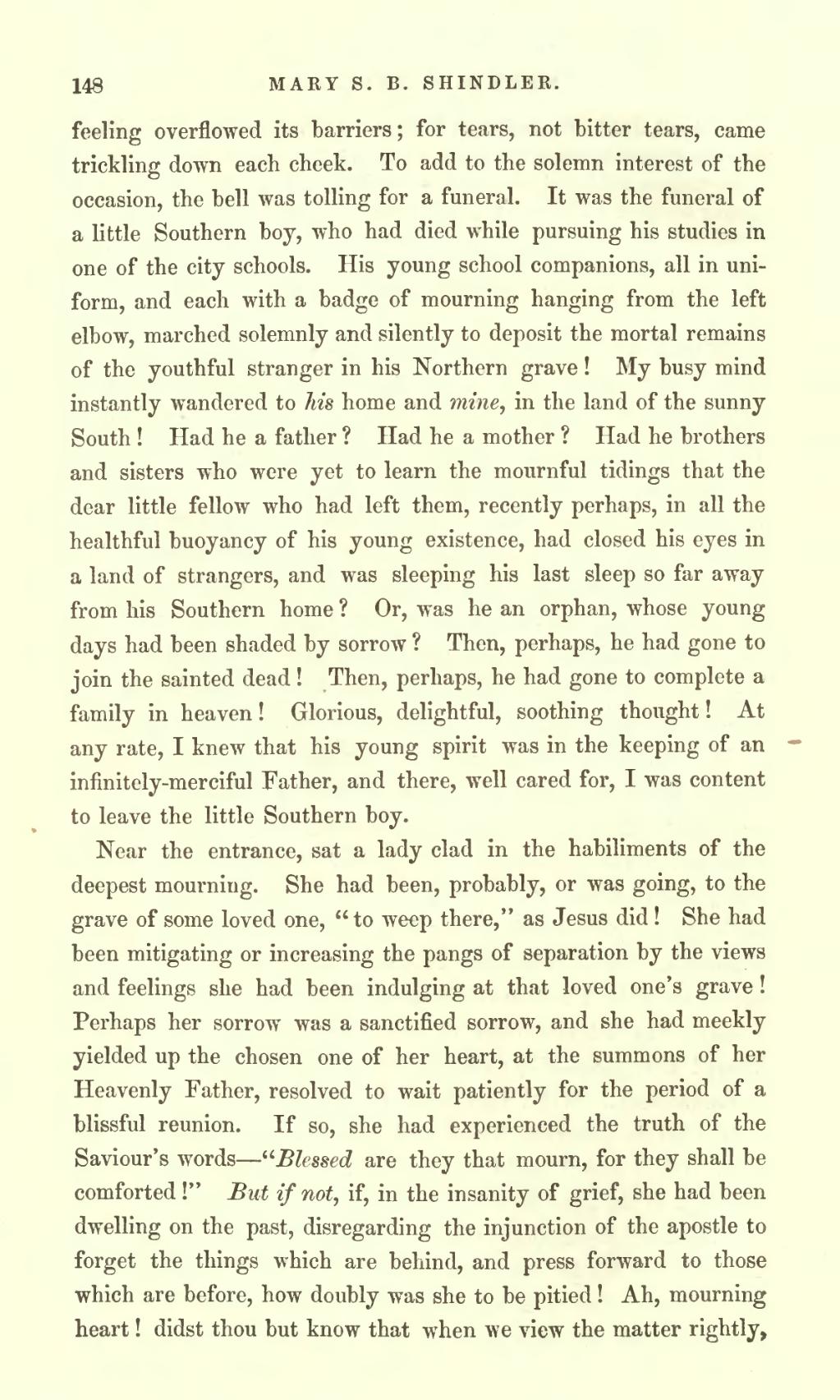feeling overflowed its barriers; for tears, not bitter tears, came trickling down each cheek. To add to the solemn interest of the occasion, the bell was tolling for a funeral. It was the funeral of a little Southern boy, who had died while pursuing his studies in one of the city schools. His young school companions, all in uniform, and each with a badge of mourning hanging from the left elbow, marched solemnly and silently to deposit the mortal remains of the youthful stranger in his Northern grave! My busy mind instantly wandered to his home and mine, in the land of the sunny South! Had he a father? Had he a mother? Had he brothers and sisters who were yet to learn the mournful tidings that the dear little fellow who had left them, recently perhaps, in all the healthful buoyancy of his young existence, had closed his eyes in a land of strangers, and was sleeping his last sleep so far away from his Southern home? Or, was he an orphan, whose young days had been shaded by sorrow? Then, perhaps, he had gone to join the sainted dead! Then, perhaps, he had gone to complete a family in heaven! Glorious, delightful, soothing thought! At any rate, I knew that his young spirit was in the keeping of an infinitely-merciful Father, and there, well cared for, I was content to leave the little Southern boy.
Near the entrance, sat a lady clad in the habiliments of the deepest mourning. She had been, probably, or was going, to the grave of some loved one, “to weep there,” as Jesus did! She had been mitigating or increasing the pangs of separation by the views and feelings she had been indulging at that loved one’s grave! Perhaps her sorrow was a sanctified sorrow, and she had meekly yielded up the chosen one of her heart, at the summons of her Heavenly Father, resolved to wait patiently for the period of a blissful reunion. If so, she had experienced the truth of the Saviour’s words—“Blessed are they that mourn, for they shall be comforted!” But if not, if, in the insanity of grief, she had been dwelling on the past, disregarding the injunction of the apostle to forget the things which are behind, and press forward to those which are before, how doubly was she to be pitied! Ah, mourning heart! didst thou but know that when we view the matter rightly,
